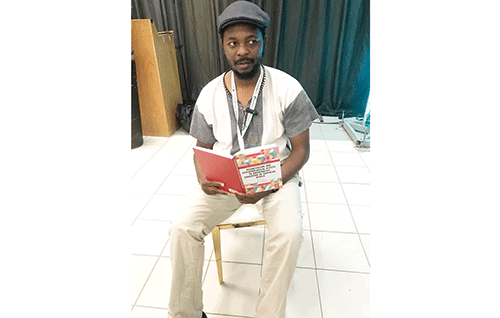A book titled ‘Visualisation and Epistemological Access to Mathematics Education in Southern Africa’ was recently launched in Windhoek during the 32nd annual Southern African Association for Research in Mathematics, Science and Technology Education (SAARMSTE) 2024 conference.
The book demonstrates that using visualisation processes in mathematics education can enhance teaching and learning, bridging the inequality gap between well-resourced and under-resourced schools in southern Africa.
It consists of four parts with the topics Visualisation and Pedagogy; Visualisation and Learning; Visualisation and Technology; and Visualisation and Semiotics and Language.
Namibian scholar Charity Ausiku, who contributed a chapter on visual teaching and fractions, said the book provides hope for teaching mathematics through visuals.
Sharing her challenges during the book’s completion, she said, “It was not an easy journey. At some point, I felt like giving up because two years is a long period”.
Ausiku said the most interesting part about writing this book was the ideas from different scholars brought together, a process through which she learned a lot.
“The most exciting thing was to publish this book with renowned publishing company Taylor and Francis. Taylor & Francis is a division of Informa – a specialist in scholarly research, and in helping academic and research communities make breakthroughs. They work with researchers, authors, editors, reviewers and customers across the international academic community, publishing 145 000 book titles and 2 700 journals under highly-regarded imprints, including Routledge, CRC Press, Taylor & Francis, Cogent OA and Dove Medical Press,” she noted.
Clement Simuji, a senior lecturer at Rhodes University, launched the book and said it is a beacon of hope for scholars and teachers in southern Africa and worldwide, but more especially for learners of all ages.
He added that visuals are employed as a method linked to digitalisation, emphasising that visualisation is not a new concept.
Simuji urges teachers to reconsider their approach to teaching mathematics to dispel negative perceptions.
David Namwandi, founder of the International University of Management (IUM), who hosted the SAARMSTE conference from 16 to 18 January, said mathematics is not an easy subject.
“Every year, we hear that most students or learners fail. I hope this book will help everyone struggling with mathematics,” he observed.
Education minister Anna Nghipondoka also recently announced a slight improvement in mathematics performance for grades 11 and 12, compared to last year.
“Furthermore, content knowledge upgrading training took place in mathematics and other subjects at national and regional levels. Similar training is planned for the 2024 school year, with a special focus on specific subjects for schools which did not perform well,” she observed whilst announcing the 2023 Namibia Senior Secondary Certificate Ordinary (NSSCO) (grade 11) and Advanced Subsidiary Levels (NSSCAS) (formerly grade 12) examination results earlier this month.
Nghipondoka further said the marking sessions revealed a clear need for further improvement in subject content knowledge and teaching higher-order thinking skills.
Deputy Prime Minister Netumbo Nandi-Ndaitwah, who was speaking during the SAARMSTE event, said educational systems must evolve to prepare students for the challenges and opportunities which lie ahead.
“The traditional method of teaching and researching in these fields are no longer sufficient,” she noted, adding that a more interdisciplinary approach ought to be embraced to foster creativity, critical thinking and problem-solving skills.
IUM hosted the SAARMSTE conference in collaboration with the Namibian University of Science and Technology, University of Namibia, National Commission on Research, Science and Technology, and the ministries of education; and higher education, technology and innovation.
It took place under the theme ‘Rethinking relevant research in Mathematics, Science and Technology Education for the fourth industrial revolution’.
SAARMSTE was founded in South Africa in 1992, and held its first conference in 1993.


